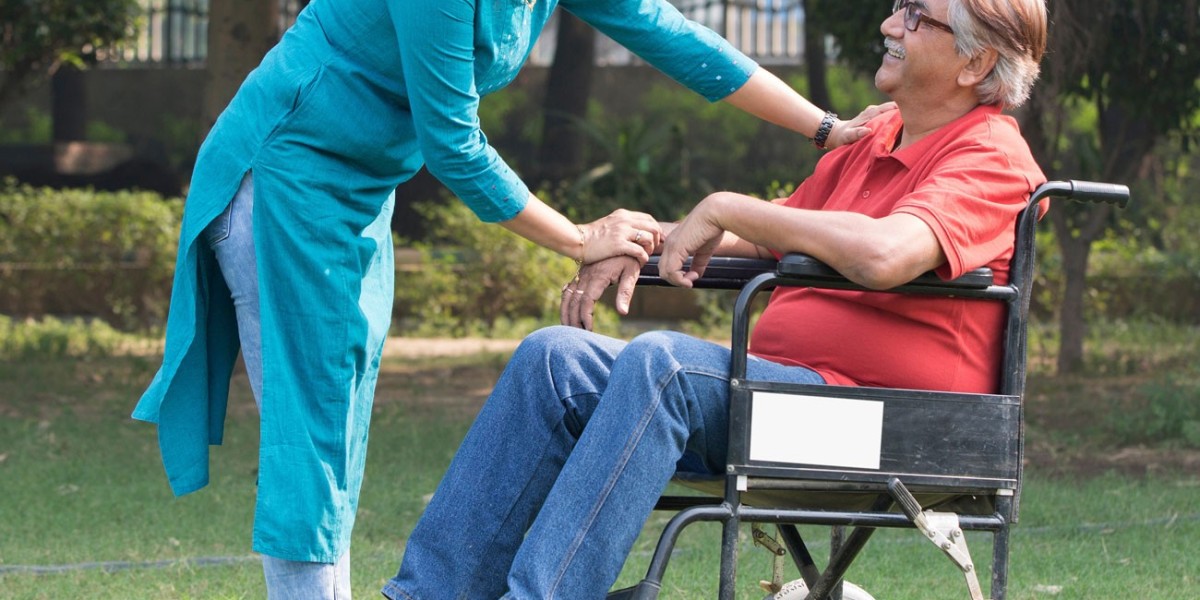Caring for a loved one with dementia can be an incredibly rewarding but also emotionally and physically demanding task. As a caregiver, you may find yourself constantly focusing on the needs of the person you’re caring for, often neglecting your own well-being. However, self-care is essential to ensure you have the energy, patience, and emotional resilience to provide the best care possible.
1. Why Self-Care is Crucial for Dementia Caregivers
Caring for someone with dementia can be overwhelming. The progressive nature of the disease, with its cognitive, emotional, and behavioral changes, can leave caregivers feeling exhausted, isolated, and stressed. Without proper self-care, caregivers are at risk of burnout, which can have serious consequences for both the caregiver and the person with dementia.
- Prevents caregiver burnout: Caregiver burnout is a common concern when providing long-term care. Chronic stress, exhaustion, and emotional fatigue can lead to physical and mental health problems, affecting your ability to care for your loved one.
- Improves emotional health: Taking care of yourself helps you maintain emotional balance. When you neglect your own needs, feelings of frustration, sadness, or resentment can arise, making caregiving even more difficult.
- Boosts physical health: Physical well-being is often compromised when caregivers don’t get enough rest or exercise. Poor physical health can worsen stress and reduce your ability to manage the day-to-day demands of dementia care.
2. Physical Self-Care: Taking Care of Your Body
Physical self-care involves taking active steps to maintain your body’s health and well-being. Regular exercise, proper nutrition, and sufficient rest are all essential for caregivers.
- Exercise regularly: Even light exercise can help relieve stress and improve mood. Consider activities like walking, yoga, or stretching. These exercises not only improve your physical health but also help you feel more energized and mentally clear.
- Prioritize sleep: Caregiving often disrupts sleep patterns, leading to fatigue. Try to create a relaxing bedtime routine, and aim for at least 7–8 hours of sleep each night. If your loved one requires nighttime care, consider asking for help from a family member or hiring respite care so you can get enough rest.
- Eat nutritious meals: Proper nutrition is essential for maintaining your energy and health. Try to eat a balanced diet, incorporating fruits, vegetables, whole grains, and lean proteins. If preparing meals is difficult, consider meal prepping or asking friends and family to help with grocery shopping and cooking.
- Get regular checkups: As a caregiver, it’s easy to neglect your own medical needs. Regular doctor visits are important to monitor your physical and mental health. Make sure to schedule routine checkups and address any health concerns promptly.
3. Emotional Self-Care: Managing Stress and Emotions
Caring for someone with dementia can be emotionally taxing. It’s important to acknowledge and address your feelings of stress, frustration, or sadness, as these emotions can affect your ability to care effectively.
- Acknowledge your feelings: It’s normal to feel overwhelmed, frustrated, or even angry at times. These emotions are natural responses to the challenges of caregiving. Recognize these feelings without guilt or shame, and give yourself permission to feel them.
- Practice mindfulness: Mindfulness techniques, such as deep breathing, meditation, or journaling, can help you manage stress and stay grounded. Taking a few minutes each day to focus on your breath or practice relaxation techniques can provide a sense of calm and clarity.
- Talk to someone: Sharing your thoughts and feelings with a friend, family member, or therapist can provide emotional support and help you process difficult emotions. It’s important to have someone you trust to lean on during challenging times.
- Join a support group: Support groups for dementia caregivers offer a safe space to connect with others who are experiencing similar challenges. You can exchange advice, share coping strategies, and offer emotional support to one another.
4. Setting Boundaries: Protecting Your Personal Space
One of the most important aspects of self-care is setting healthy boundaries. Caregivers often feel guilty about needing time for themselves, but maintaining boundaries is essential for your well-being.
- Learn to say no: It’s okay to say no when someone asks for more help than you can provide. Caregiving is a demanding role, and taking on too much can lead to burnout. Set clear limits on your time and energy, and be honest about what you can and cannot do.
- Ask for help: Don’t hesitate to reach out to family members, friends, or professional caregivers for assistance. Whether it’s for help with tasks around the house or to give you a break, asking for help can alleviate stress and prevent you from becoming overwhelmed.
- Schedule time for yourself: Carve out regular time in your week for activities that recharge you. Whether it’s reading a book, going for a walk, or enjoying a hobby, taking time for yourself is vital for maintaining your physical and emotional health.
5. Respite Care: Taking a Break
Respite care is an essential resource for caregivers. It allows you to take a break from caregiving duties and focus on your own well-being. Respite care can be in-home or through outside services, such as adult day programs or short-term residential care.
- Explore respite options: Look into local respite care services, such as adult day centers, in-home respite care providers, or short-term stays in care facilities. These services give you a much-needed break while ensuring that your loved one receives quality care.
- Share responsibilities: If you have family members or close friends who can help, consider sharing caregiving duties. Even taking turns for a few hours can make a big difference in reducing stress and giving you time to recharge.
6. The Role of Hobbies and Social Activities
Maintaining hobbies and social connections is another important aspect of self-care. Engaging in activities you enjoy can help you de-stress, feel fulfilled, and stay connected to your sense of self.
- Pursue hobbies: Whether you enjoy knitting, painting, gardening, or reading, it’s important to make time for activities that bring you joy. Hobbies are a great way to relax and unwind after a busy day of caregiving.
- Stay socially connected: Caregivers often become isolated, but maintaining social connections is crucial. Regularly meeting with friends or family members (even if it’s virtually) helps you feel supported and reduces feelings of loneliness.
- Volunteer or join a group: If you have the time, consider volunteering or joining a local group that interests you. Social engagement can be a great way to take your mind off caregiving duties and build a sense of community.
7. Seeking Professional Help When Necessary
Finally, don’t hesitate to seek professional help if you feel overwhelmed. A mental health professional, such as a counselor or therapist, can provide support and teach you coping strategies to manage stress and emotions.
- Talk to a therapist: If you’re struggling with feelings of anxiety, depression, or caregiver stress, a therapist can help you develop strategies to cope with the emotional challenges of caregiving.
- Consider caregiver coaching: Some caregivers benefit from working with a coach or counselor who specializes in dementia care. They can help you find effective ways to balance caregiving responsibilities with self-care.
Conclusion
Self-care is not selfish; it is an essential component of being an effective caregiver. By prioritizing your physical, emotional, and mental well-being, you’ll be better equipped to handle the challenges of dementia care. Remember, taking care of yourself is not only beneficial for you but also for the person you’re caring for. When you are healthy and well-rested, you can provide the best care possible and create a more positive and fulfilling caregiving experience for both of you.








